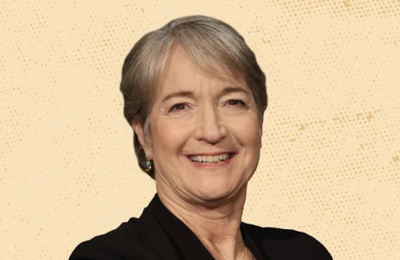
Lopez
HONOLULU - The State of Hawaii says the federal government has no authority to sue it for bringing a climate change lawsuit against Big Oil - though its case was filed after President Donald Trump forbid it.
Trump's executive order prohibited states, cities and counties from suing companies like Exxon and Chevron, warning this litigation jeopardizes the feds' regulation of the international energy market. But Hawaii Attorney General Anne Lopez did anyway, after the Trump Administration had tried to block her from doing so with a federal lawsuit.
Now, Lopez seeks to dismiss that lawsuit with a July 25 motion, calling the case "extraordinary and unprecedented."
"Allowing this case to proceed would give the United States license to wield the federal courts as a weapon against any litigation between nonfederal parties that an incumbent presidential administration dislikes," Hawaii's motion says.
Dozens of climate cases were filed before Trump's executive order. Seven state court judges have thrown them out of court, though two state supreme courts - Hawaii and Colorado - have allowed them to proceed.
Exxon and Suncor last week asked the U.S. Supreme Court to decide once and for all whether local government officials and state court judges can, they say, disrupt emissions standards established by the federal government.
"Boulder, Colorado, cannot make energy policy for the entire country," the companies argued.
The lawsuits were crafted to stay in state court and allege the public wouldn't have used as many fossil fuels as it did had it known about the dangers of climate change. They make state-law claims for consumer protection and public nuisance, though judges have written their real focus is on emissions.
Hawaii says the federal government can't stop it from prosecuting private parties whose actions violated state law. The feds have no standing to sue Hawaii, it adds.
"Its allegations of future harm are far too abstract and inchoate to meet the concreteness requirement, and its alleged injuries are conjectural and hypothetical, not actual or imminent," the motion to dismiss says.
"Its theory of standing is based on potential downstream effects of the State Action that are too speculative and remote to establish a cognizable injury. And the United States does not establish traceability or redressability because its alleged injuries depend on multiple layers of contingencies, including the unpredictable decisions of third parties."
And a federal judge should abstain from interfering with a state-court lawsuit, it says.
Trump also sued Michigan upon learning AG Dana Nessel planned a lawsuit of her own. But she has not filed one, leading her to challenge Trump's case as premature.
Judges in South Carolina, Maryland, New Jersey, New York, Delaware and Pennsylvania have found the cases involve questions of international emissions standards better left to the federal government.
Bucks County, Pa., judge Stephen Corr noted that county's complaint used the word "emissions" more than 100 times, while "deceptive" and "deception" were used only 39 times combined.
Judge Videtta Brown, in Baltimore's case, said the litigation goes beyond the limits of Maryland law, or whatever states other cases are filed in.
"This Court holds that the U.S. Constitution's federal structure does not allow the application of state court claims like those presented in the instant cases," Judge Steven Platt wrote in tossing Annapolis' case.
"The States such as Plaintiffs here... can participate in the efforts to limit emissions collaboratively, but not in the form of litigation... If states and municipalities [or] even private parties are dissatisfied with the federal rulemaking or the outcome of cases, they may seek federal court review."


